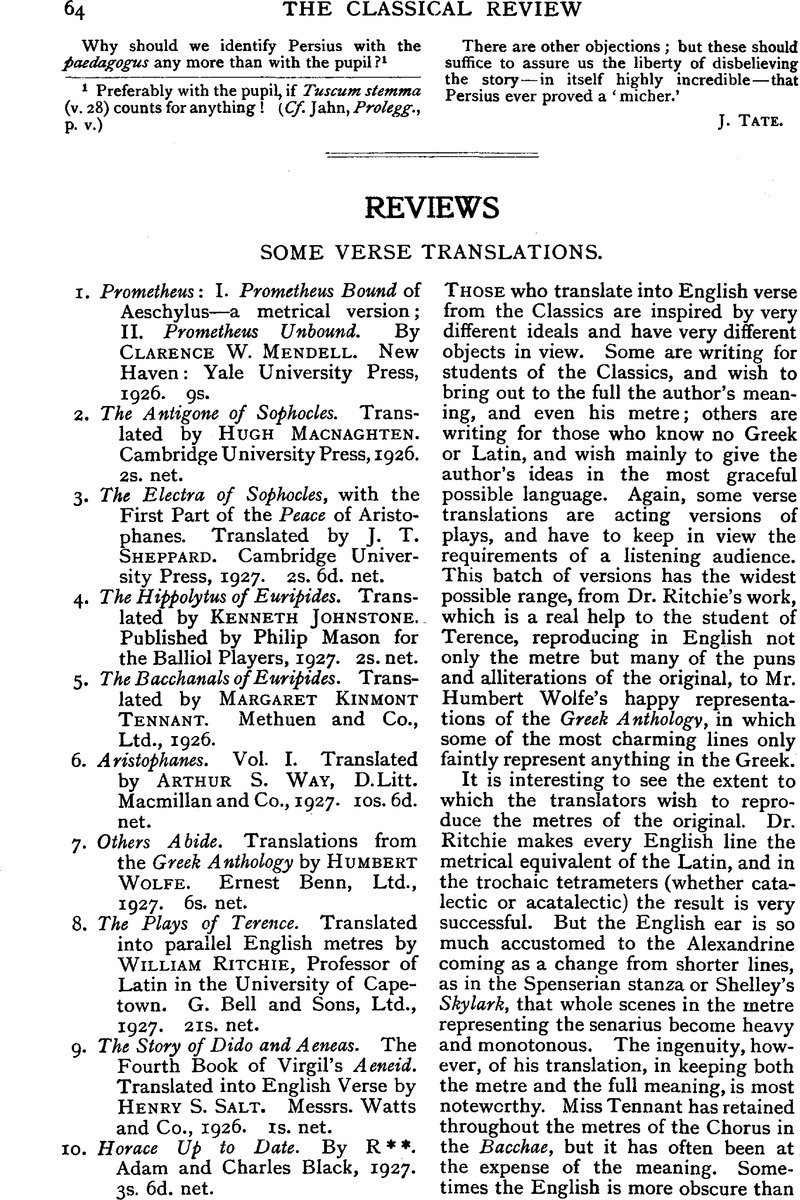No CrossRef data available.
Published online by Cambridge University Press: 27 October 2009

1 Mr. Sheppard leaves unsettled a question which has often interested me. What happens to the Paedagogus after 1382? There is no need for him to enter the palace, as Jebb makes him. I suggest that he made it his object to inform Aegisthus on his return, and that a clue to this is given by the fact that his actual words (730) are quoted in 1444 by Aegisthus.